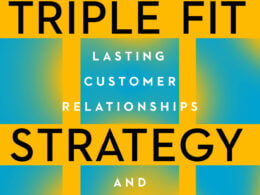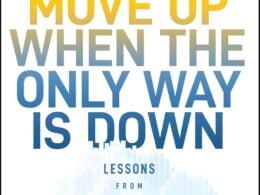As a former Silicon Valley journalist, Damon Brown immersed himself in the tech startup world and repeatedly saw founders sacrificing their health, their relationships and their sanity for the sake of success. But when Brown moved to San Diego, started a family and launched his own successful startup, he realized that those sacrifices aren’t always necessary.
That discovery led Brown to write “The Bite-Sized Entrepreneur: 21 Ways to Ignite Your Passion & Pursue Your Side Hustle,” and a follow-up book, “The Productive Bite-Sized Entrepreneur: 24 Smart Secrets to Do More in Less Time,” available now, and excerpted on StartupNation. He’s also presented a TED talk called “The Positive Power of Observation.”
We talked to Brown about his inspirations for the Bite-Sized Entrepreneur book series, why we overwork ourselves and what to do instead. The transcript below has been edited for clarity and brevity.
What inspired you to write “The Bite-Sized Entrepreneur”?
Damon Brown: “The Bite-Sized Entrepreneur” came from two experiences. The first was becoming an entrepreneur. That was happening at the same time that our first child turned one. My work week went from 60 hours to 15 hours because I was spending most of my time taking care of my son.
Before we started a family in San Diego, we lived in San Francisco and I was a journalist reporting on Silicon Valley. I’d been in this atmosphere where I had seen people sacrifice and I saw people say, “you can’t have a family and have a successful startup.”
We moved from Silicon Valley to San Diego to get out of the chaos of Silicon Valley. About a year or two after we settled down here I came out with my first app called So Quotable, and I ended up being connected to the co-founders of Cuddlr through a mutual friend.
The app blew up, it was really successful right out of the gate, and then we end up selling it about 11 months later. Based on all the mythology that I’ve heard from everyone, nearly everyone in Silicon Valley, that wasn’t supposed to happen. I’m this stay-at-home dad with a journalism background who left Silicon Valley, created a startup, became really successful, and we sold it within a year.
That was the first thing that fueled the book, trying to capture some of those ideas. The second thing was, I got approached by Inc. Magazine and my column was about asking the question, if it’s possible to be an ambitious, successful entrepreneur without destroying your health or ruining your relationships.
The book is this combination of my own experiences running Cuddlr and my experiences of doing the column and being on the front lines of discussing those issues with other entrepreneurs.
Where do we get this “all or nothing” mentality?
Brown: We want to feel like we’re accomplishing something. Therapist and TED talk speaker Brené Brown has talked about comparative suffering. That would be like you saying you have a bad day and me saying, “I had a worse day.” If you say, “my car got towed,” I’d say, “oh, I got into a car accident.”
As founders, we go through the same thing. For us it ends up being, “I stayed up 24 hours trying to get the code right,” and then you might say, “well, I spent 48 hours trying to get this thing done.” That becomes a point of bragging. Over the years I spent in Silicon Valley, I heard it again and again.
But when you have external limitations, you really figure out where you’re wasting time. I went down to 15 hours after my son was born and my wife went back to work, and suddenly I’m way more productive. People want to say that they stayed up for 72 hours, but we don’t know how much they actually got done.
Also on StartupNation.com: Becoming Bulletproof is the Key to Success by Damon Brown [Book Excerpt]
Are there some entrepreneurial ideas that do require complete focus?
Brown: If you’re running Facebook, then that’s not a side hustle. If you’re in charge of Twitter, even with Jack Dorsey doing his job in between his two startups, that’s not a part-time job. The main thing is if you follow the idea of a side hustle, then you give an opportunity for that thing to grow.
But the final thing is understanding when it’s time to let something go and when it’s time to grow something, and I think that’s a key thing. I have a lot of startup ideas that I would love to pursue, but they’re either not ready yet or I need a partner to really do it right and I haven’t found that partner. But the matter of knowing when to stop and when to go. When it’s time to go, then you do have to make some bigger sacrifices, and maybe it isn’t a bite-sized thing.
Anything else you’d like readers to know?
Brown: The main idea that I want to push with the book is that the belief that your entrepreneurial success requires you sacrificing everything is a myth. We tend to put the cart in front of the horse and believe that we have to begin sacrificing things immediately. Sacrificing everything to have success isn’t necessarily required, especially early on.
I had success and I was able to do it within 15 hours a week or so, and that’s possible for other startup ideas, too. There are other ideas where once they get bigger you will have to make bigger sacrifices. But I think we have the assumption that everyone’s startup idea requires you to be there 100 percent, sacrifice everything else in your life, and that’s not true at all.






